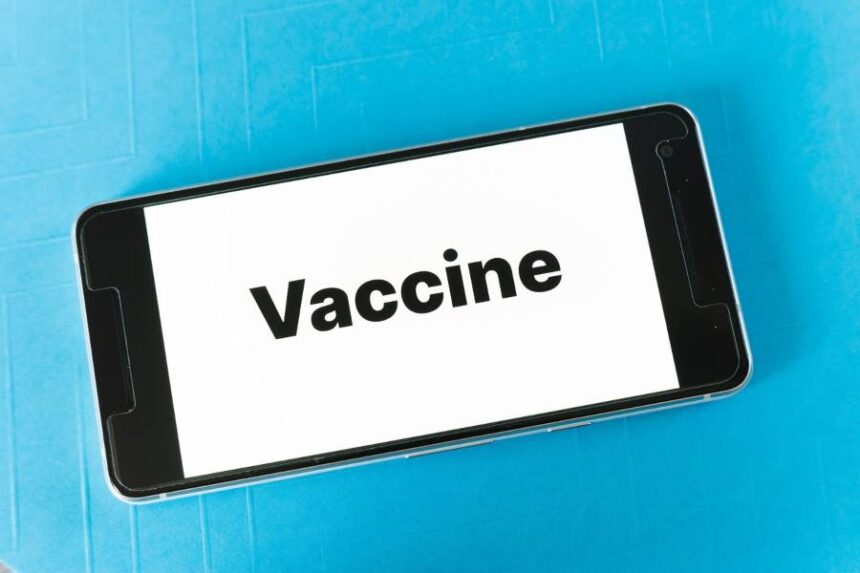The question “Is there a vaccine for bird flu?” has become increasingly relevant as avian influenza outbreaks continue to make headlines worldwide. Bird flu, or avian influenza, is a viral infection that primarily affects birds but can occasionally infect humans and other animals. As the global health community remains on high alert due to emerging infectious diseases, the development and availability of a vaccine for avian flu are crucial concerns.
Vaccination remains one of the most effective tools in combating viral epidemics. However, the complex nature of avian influenza viruses, which mutate rapidly and exist in multiple strains, poses significant challenges in creating a universally effective vaccine. In this article, we will explore whether a vaccine for bird flu exists, how it works, its availability, and the future of immunization strategies against avian influenza.
Is there a vaccine for bird flu?
Yes, there is a vaccine for bird flu, but it is primarily used in poultry and limited emergency cases for humans. Human vaccines are in development and stockpiled for potential pandemics.
The Science and Strategy Behind Bird Flu Vaccine Development
Bird flu, also known as avian influenza, is a zoonotic disease, meaning it can jump from animals, specifically birds, to humans. The most concerning strains, such as H5N1 and H7N9, have caused human infections in the past, prompting global health agencies like the World Health Organization (WHO) and the Centers for Disease Control and Prevention (CDC) to invest in vaccine development. When asking, “Is there a vaccine for bird flu?” it’s important to distinguish between poultry and human vaccines. Poultry vaccines are widely used to prevent bird virus transmission and reduce human exposure. Human vaccines are reserved primarily for emergencies and are not part of routine vaccinations.
One key reason human bird flu vaccines are not widely distributed is the virus’s limited human-to-human transmission. Without sustained outbreaks, widespread immunization lacks urgency. Additionally, the virus mutates rapidly, requiring frequent vaccine updates, similar to but more complicated than seasonal flu vaccines. Time America Watch reports that experts emphasize the need for continuous monitoring and updated solutions. Financial limitations and a lack of commercial incentive also slow production. Governments and global health organizations continue to stockpile vaccines for pandemic preparedness, ensuring a partial shield should a major outbreak occur. Thus, the answer is yes, but with many complexities.
How Do Bird Flu Vaccines Work?
Bird flu vaccines operate like standard influenza vaccines by training the immune system to recognize and combat the virus. These vaccines typically use inactivated or attenuated (weakened) strains of avian influenza to expose the body to a version of the virus safely. Once administered, the immune system produces antibodies specifically designed to detect and neutralize the real virus upon future exposure. This immune memory helps the body respond faster and more effectively if the person or animal later encounters the actual virus.
Effectiveness Against Multiple Bird Flu Strains
The effectiveness of bird flu vaccines can vary greatly depending on the viral strain. One of the biggest challenges in avian influenza prevention is the virus’s rapid mutation rate. Different subtypes, such as H5N1 and H7N9, may require distinct vaccine formulations. While some cross-protection between related strains is possible, it is not guaranteed. This ongoing variability often necessitates continual research and frequent vaccine updates to keep pace with new variants.
Approval and Availability of Human Vaccines
Human bird flu vaccines are not commonly available for general use, but several have been developed and approved for emergency deployment. Vaccines for specific strains like H5N1 and H7N9 have received approval from regulatory bodies such as the U.S. Food and Drug Administration (FDA) and the European Medicines Agency (EMA), primarily for pandemic preparedness stockpiles.
Differences Between Poultry and Human Vaccines
Poultry vaccines are specially formulated for birds and are widely used in regions with recurring outbreaks. These vaccines are not interchangeable with human versions and contain the spread within animal populations, reducing the risk of spillover to humans.
Side Effects of Human Bird Flu Vaccines
Human avian flu vaccines generally have mild side effects, similar to seasonal flu shots. These may include soreness at the injection site, low-grade fever, and fatigue, which typically resolve within a day or two.
Who Needs the Bird Flu Vaccine Most?
While bird flu vaccines are not yet distributed to the general public on a broad scale, specific groups of individuals are considered high-priority for vaccination if a large-scale deployment becomes necessary. These groups are at elevated risk due to frequent exposure to infected birds, environments, or virus samples. Here’s a breakdown of the populations most likely to benefit from bird flu vaccination:
- Poultry Workers: Individuals working in poultry farms or slaughterhouses are regularly exposed to live birds, making them highly vulnerable to infection during outbreaks.
- Veterinarians and Animal Handlers: Those who treat or manage birds and other animals may come into direct contact with infected avian species, increasing their risk of contracting the virus.
- Healthcare Workers: In a human outbreak, frontline medical staff treating infected patients would be among the first vaccinated to ensure their safety and continued patient care.
- Travelers to High-Risk Regions: People visiting countries where avian influenza is actively circulating may be advised to receive a vaccine if one is available for protection.
- Laboratory Researchers: Scientists and lab technicians handling avian influenza samples are subject to high biosafety protocols and are often given priority for vaccination to minimize occupational risk.
These individuals are crucial in preventing the spread of avian influenza and maintaining public health safety during potential outbreaks.
When Is the Bird Flu Vaccine Used?
Bird flu vaccines are not included in routine immunization schedules for the general public. Their use is typically reserved for specific, high-risk scenarios. When a new, highly pathogenic strain such as H5N1 or H7N9 emerges—especially one with a high human fatality rate—governments may initiate emergency vaccination programs focused on vulnerable groups like healthcare workers, poultry workers, or those in outbreak zones. To ensure rapid response, many nations maintain stockpiles of these vaccines, which are only distributed in the event of a serious public health threat. On the animal health side, bird flu vaccines are more commonly used to protect poultry during outbreaks. Large-scale poultry vaccination programs help prevent widespread culling and minimize economic loss, though such measures are carefully regulated to comply with international trade standards. Therefore, the use of bird flu vaccines depends on the situation, whether for human pandemic preparedness or controlling avian infections in agriculture.
Why Is It So Difficult to Mass Produce a Bird Flu Vaccine?
Producing a bird flu vaccine on a mass scale is far more complex than it may seem. Several key challenges—scientific, logistical, regulatory, and political—stand in the way. Here’s a breakdown of the major obstacles:
- Constant Virus Mutation: Bird flu viruses, particularly H5 and H7 strains, mutate rapidly. This constant evolution makes it extremely difficult to develop a universally effective vaccine. When one version is ready, a new strain might already be circulating.
- Slow Production Methods: Most flu vaccines are made using egg-based technology, which is slow and labor-intensive. It can take several months from identifying a virus strain to producing large quantities of vaccine, limiting rapid response in a crisis.
- Lengthy Regulatory Approvals: Vaccines must undergo safety and efficacy testing even under emergency use provisions. These trials are time-consuming and must meet rigorous standards before public use is authorized.
- Limited Public Demand: Without a widespread outbreak, there is little urgency or commercial incentive to produce large quantities of bird flu vaccines, which limits pharmaceutical companies’ investment.
- Challenging Storage and Distribution: Pandemic vaccines often require strict cold-chain storage. Ensuring proper refrigeration and transport on a global scale is logistically demanding and expensive.
- Inconsistent Funding and Political Will: Vaccine development and stockpiling depend heavily on political commitment and funding, which can waver when bird flu isn’t making headlines.
Conclusion
So, is there truly a solution to bird flu threats? The answer to “Is there a vaccine for bird flu?” is yes—but it’s not that simple. The real challenge lies in timely production, distribution, and public access. Rapid virus mutations, limited manufacturing speed, and global health disparities all complicate vaccine deployment. While countries maintain stockpiles and prepare for outbreaks, these vaccines are not readily available to the general public unless a pandemic threat emerges. Coordinated global efforts, sustained funding, and advanced research are critical to improving readiness. Despite progress, developing a widely accessible, universal bird flu vaccine is still a work in progress—an ongoing goal in global health preparedness.
FAQ’s
Is there a vaccine for bird flu available to the public?
Not widely. While human bird flu vaccines do exist, they are primarily stockpiled by governments and reserved for emergencies or potential pandemics.
Can you get vaccinated for bird flu if you work with poultry?
In some countries, you might be eligible if your occupation places you at high risk of exposure. This often includes poultry workers, veterinarians, and lab researchers.
Is the bird flu vaccine different from the seasonal flu shot?
Yes, absolutely. Bird flu vaccines are designed to protect against specific avian influenza strains like H5N1 or H7N9, which are not covered by the standard seasonal flu shot.
Why isn’t everyone vaccinated against bird flu?
Mass vaccination isn’t currently necessary because avian flu rarely spreads between humans. Instead, public health officials focus on containment and targeted immunization.
Are there new bird flu vaccines in development?
Yes. Several new vaccines are currently in clinical trials to improve their effectiveness against rapidly mutating strains, such as H5 and H7 subtypes.




